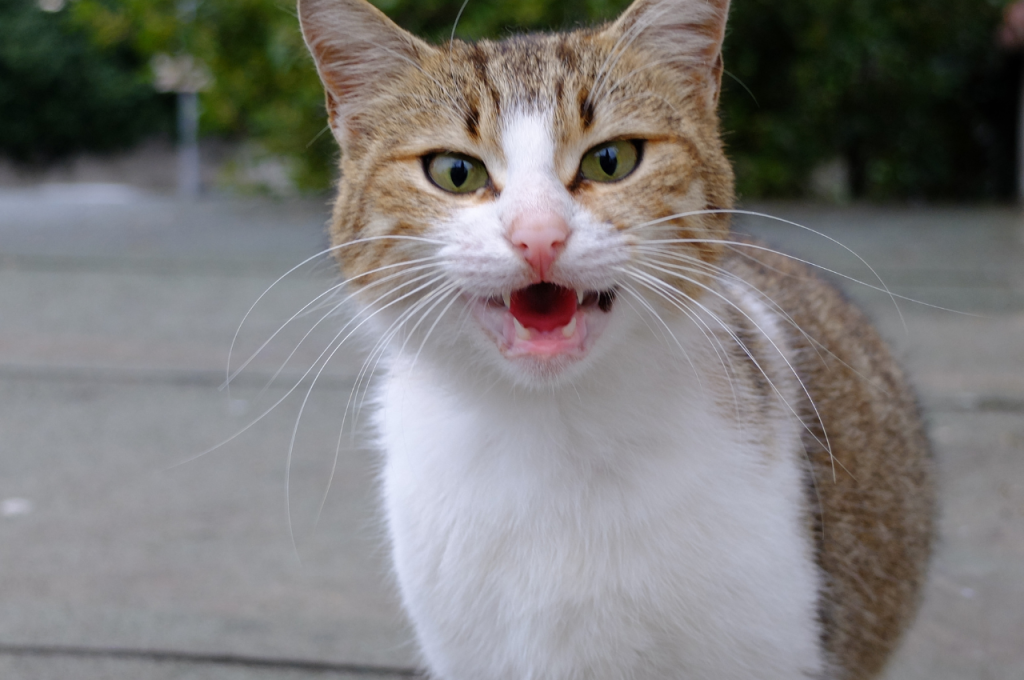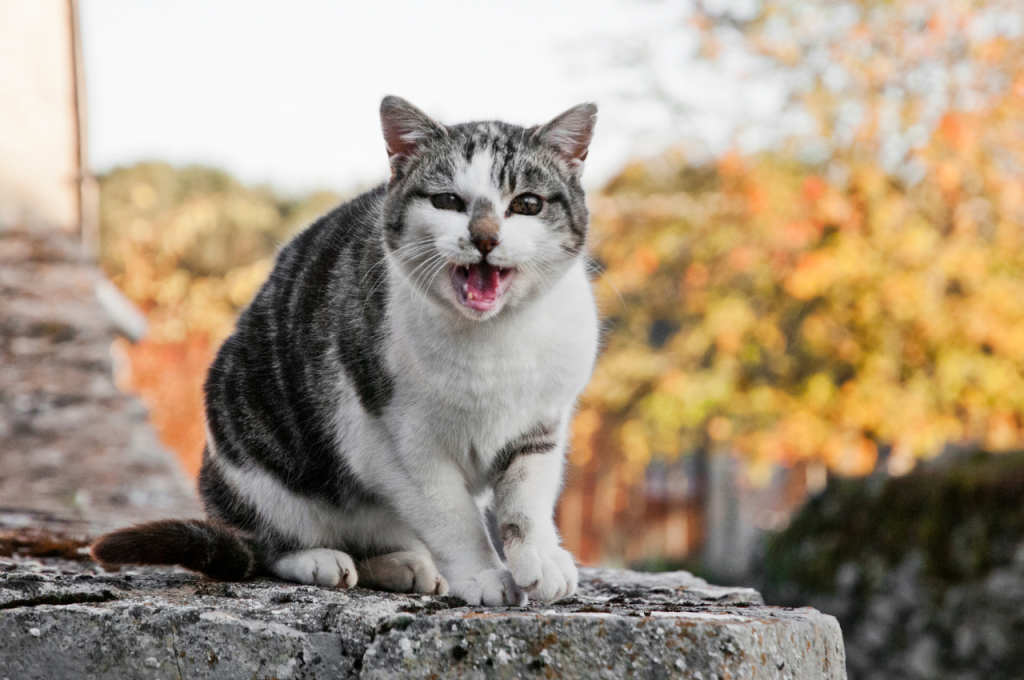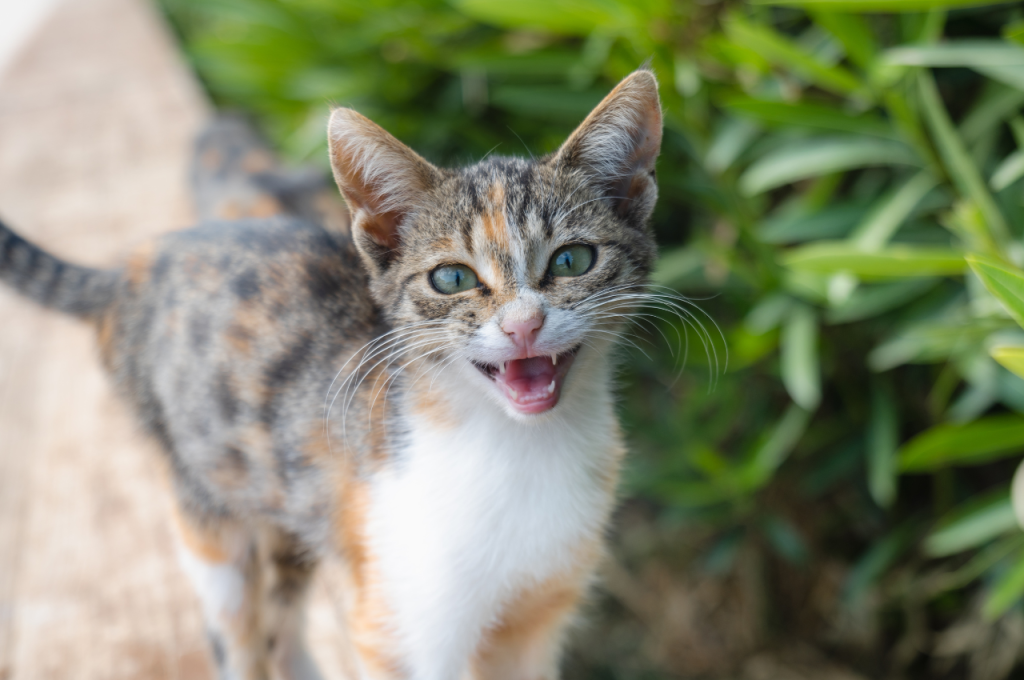Cats meow excessively due to various reasons, including possible medical issues or behavioral problems. Understanding the underlying cause is crucial to addressing the problem.
Are you wondering why your cat seems to be meowing more often than usual? While cats naturally vocalize with meows, purrs, and other sounds, excessive meowing could indicate an underlying issue. It may be a sign of physical discomfort or pain, such as a urinary tract infection or dental problems.
Alternatively, it could be a behavioral issue, such as attention-seeking behavior or anxiety. As a responsible owner, it’s important to take note of any changes in your cat’s behavior and visit a vet for a proper diagnosis and treatment. We’ll explore some common reasons why cats meow excessively and how to address the issue.
Is Your Cat Constantly Meowing?
As a cat owner, you might have experienced your cat meowing a lot. Cat meows can be cute and charming, but when they become constant, they can become annoying and worrisome. So, what does it mean when your cat meows constantly? Understanding your feline friend’s behavior is the first step you can take toward helping them.

Understanding the Normal Amount of Meowing in Cats
Cats are vocal creatures and use their meows to communicate with their owners. Normally, cats meow to get attention or to express hunger, thirst, or boredom. Additionally, the vocalization of cats can also indicate emotional distress, physical pain, or an underlying medical condition. However, a certain level of meowing is expected from your feline friend.
Normal meowing in cats:
- Asking for food or treats
- Greeting their owner
- Asking for playtime
- Expressing curiosity or excitement
Cats are generally active during dawn and dusk periods. Therefore, it is common for cats to be more vocal during these times. However, if your cat’s meowing becomes too frequent, it may be a sign of an underlying issue that needs to be addressed.
When Too Much Meowing is A Problem
Excessive meowing may indicate a medical issue or a behavioral problem that requires intervention. You should take your cat to the vet to rule out any health problems. If your cat gets a clean bill of health, you should consider modifying their behavior.
Reasons for excessive meowing:
| Underlying health problems | Cats may meow excessively if they are in pain or feeling unwell. Your cat may have an underlying medical condition, such as a urinary tract infection, hyperthyroidism, or dementia. |
| Loneliness | Cats are social creatures and can become lonely and bored if left alone for long periods. To alleviate this, you should spend more quality time with your cat and provide toys and scratching posts. |
| Stress and anxiety | Cats can become stressed or anxious if their daily routine is disrupted or they feel threatened. Try to create a safe and comfortable environment for your cat by providing a private space and keeping loud noises to a minimum. |
Making changes in your cat’s environment, such as providing a routine, engaging with them more frequently, and creating a safe environment, can help decrease your cat’s excessive meowing.
Meowing is a normal behavior in cats but continuous meowing can be concerning and indicates an underlying issue. Understanding your cat’s behavior and taking the necessary steps to modify their behavior can help you reduce their meowing and create a happy and healthy environment for them.
Health Reasons for Excessive Meowing
Excessive meowing in cats may be a sign of various health issues, including anxiety, pain, or hunger. It’s essential to observe your cat’s behavior and take them to a veterinarian if you notice any changes in their meowing patterns.
If your cat is meowing excessively, it could indicate a health problem that needs immediate attention. Below are some of the common health reasons for excessive meowing that you should watch out for.
Pain or Discomfort
Cats are susceptible to all kinds of pains and discomforts from time to time. Just like humans, they can experience muscle aches, headaches, and other types of pain. If your cat is suffering from any of these conditions, they may start meowing excessively to alert you. They may also display other signs of pain such as hiding, aggression, or not eating well. If you notice any of these symptoms, take your cat to the vet immediately.
Hyperthyroidism
Hyperthyroidism is an endocrine disorder that affects many cats. It is the result of an overactive thyroid gland that produces too much thyroxine hormone, leading to an increased metabolic rate and associated symptoms such as weight loss, increased appetite, and excessive meowing. If you suspect that your cat has hyperthyroidism, your vet can conduct a blood test to confirm it. Treatment may include medication, surgery, or radioactive iodine therapy.
Cognitive Dysfunction Syndrome
Cognitive Dysfunction Syndrome is a condition that affects senior cats and is similar to dementia in humans. As cats age, their cognitive abilities begin to decline, leading to symptoms such as confusion, disorientation, and excessive meowing. To manage this condition, you should provide your cat with a comfortable and peaceful environment, keep their routine consistent, and provide them with mental stimulation activities.
Hearing Loss
Hearing loss is a common condition that affects many cats as they age. If your cat is experiencing hearing loss, they may start meowing excessively because they cannot hear themselves or others. They may also become more aggressive and less social. To manage this condition, you should provide your cat with a quiet environment free of loud noises or sudden movements. You can also teach them hand signals to communicate with them. If you notice that your cat is meowing excessively, take them to the vet immediately to rule out any underlying health problems. Remember, early detection and treatment can help ensure that your cat stays healthy and comfortable.
Environmental Causes of Excessive Meowing
Excessive meowing in cats can be caused by environmental factors such as stress, boredom, or attention-seeking behavior. It’s important to identify the root cause and provide proper care and attention to help alleviate this behavior.

If you have a feline friend, you know that they can be quite talkative at times. However excessive meowing can be a sign of an underlying issue. In this blog post, we’ll explore the environmental causes of excessive meowing in cats. These causes include hunger or thirst, loneliness or boredom, stress or anxiety, and territorial instincts.
Hunger or Thirst
Cats can become very vocal when they’re hungry or thirsty. It’s important to provide your cat with fresh food and water throughout the day. Consider investing in an automatic feeder or water fountain to keep your cat’s food and water supply consistent. If your cat is still meowing excessively even after being fed, it might be a sign of an underlying medical condition. In this case, it’s best to take your cat to the vet for a check-up.
Loneliness or Boredom
Indoor cats can become lonely and bored without enough stimulation. If your cat is meowing excessively, try providing them with more interactive toys or playing with them for an extended period. You can also consider getting a second cat to keep your feline friend company. However, be sure to introduce the cats slowly and monitor their behavior. If your cat continues to meow excessively even with increased interaction, it could be a sign of an underlying issue.
Stress or Anxiety
Cats can experience stress and anxiety due to changes in their environment or routine. This can include moving to a new home, the addition of a new pet or family member, or changes in their litter box. If your cat is meowing excessively, it might be a sign of stress or anxiety. Try creating a calm and safe environment for your feline friend and maintaining a consistent routine. You can also speak with your vet about potential medications or supplements to help reduce your cat’s stress.
Territorial Instincts
Cats can become excessively vocal to protect their territory. This can include meowing when they see animals outside or when they feel threatened. If your cat is meowing excessively, try closing the curtains or blinds to prevent your cat from seeing outside. You can also provide your cat with a comfortable and secure space to relax in, such as a cat tree or bed. If your cat’s meowing is a result of territorial instincts, providing them with a safe and secure environment can help reduce their excessive meowing.
Other Reasons for Excessive Meowing
Excessive meowing in cats can also be caused by boredom, attention-seeking behavior, hunger, or even pain. It is important to understand the underlying reason for your cat’s meowing to alleviate the issue and provide your feline friend with the appropriate care.
If you are a cat owner, you probably know that excessive meowing is a common behavior in cats. However, sometimes the meowing can be too much and become a cause of concern for the cat owners. While hunger, thirst, or the need for a litter box may be the main cause of excessive meowing, there are also other reasons why your cat could be meowing too much. Below are some common reasons for excessive meowing in cats:
Attention Seeking
Cats are known for their attention-seeking behavior, and they often use meowing as a way to get their owner’s attention. If your cat is meowing excessively and nothing seems to be wrong, it could be simply because they want you to notice them. They may be bored, lonely, or just looking for some playtime.
Age-related Changes in Behavior
As cats age, their behavior can change, and they may become more vocal than before. Senior cats may meow more frequently due to dementia, loss of hearing, or vision problems. Therefore, if you have an older cat that is meowing excessively, it’s essential to take them to the vet for a check-up to ensure that there are no underlying health issues.
Meowing as A form of Communication
Cats are vocal animals, and meowing is their way of communicating. They may meow to indicate hunger, thirst, or a need for attention. Alternatively, they may meow to express discomfort or pain. Therefore, if your cat is meowing excessively, it could be a sign that they are trying to communicate something to you.
How to Address Your Cat’s Excessive Meowing
Is your feline friend meowing excessively? There are various reasons why your cat might be meowing excessively such as attention-seeking, hunger, anxiety, or illness. To address your cat’s excessive meowing, try to understand the underlying cause and provide the necessary attention and care.

If your feline friend is excessively meowing, you may be wondering what could be causing this behavior. Excessive meowing in cats can be due to a range of reasons, such as hunger, stress, anxiety, or simply seeking attention. However, as a cat owner, there are some solutions you can try to address your cat’s excessive meowing.
Firstly, it’s essential to take your cat for a check-up with a veterinarian to rule out any underlying medical conditions that could be causing your cat’s excessive meowing. Your vet may perform some tests to determine if your cat is suffering from any health issues and provide recommendations on the best steps to take. Next, you can try to modify your cat’s environment to make them feel comfortable and secure.
For instance, you can provide a quiet space for your cat to retreat to when they feel anxious or stressed. You can also include some high places in your indoor cat’s environment, such as cat shelves or cat trees, which may help them feel safe and secure. Providing Adequate Mental and Physical Stimulation One of the main reasons for excessive meowing in cats is boredom or a lack of mental and physical stimulation.
As cat owners, it’s our responsibility to provide our feline friends with adequate playtime and activities. Consider investing in some cat toys or interactive games that will keep your cat entertained. Also, engage your cat in playtime regularly, which can help in the reduction of excessive meowing.
Establishing regular feeding and playtime routines Finally, it’s essential to establish regular feeding and playtime routines for your cat. Providing your cat with a consistent routine can help to reduce their anxiety or stress levels. Ensure that you stick to the same feeding and playtime schedules each day and provide your cat with enough time and attention.
Frequently Asked Questions of Why Is Your Cat Meowing So Much
Here are some questions about why is your cat meowing so much:
1. Why is my cat meowing more than usual?
Your cat could be meowing more than usual due to various reasons such as hunger, loneliness, illness, stress, or attention-seeking behavior. Observe your cat to identify the cause of increased vocalization and consult a veterinarian if necessary.
2. When should I be worried about my cat meowing?
You should be worried about your cat meowing if it suddenly changes its behavior, frequency, or tone of meowing. If it shows signs of illness, injury, or distress, such as lethargy, loss of appetite, or vomiting, seek medical attention immediately.
Also, if it is excessively meowing during odd hours, there may be an underlying issue that needs to be addressed.
3. Why is my cat meowing so much at nothing?
Cats meow for various reasons, including boredom, loneliness, or as a way to get attention. Sometimes they meow for no apparent reason, possibly due to a medical condition or anxiety. It’s important to monitor their behavior and visit a veterinarian if you suspect any health issues.
4. Why is my cat meowing so loud?
Cats meow loudly for various reasons such as to demand attention, express hunger or discomfort, seek affection, or simply to communicate. Loud meowing could also be a sign of age-related cognitive changes, illness, or stress. Understanding your cat’s meowing patterns can help you provide better care and address any underlying issues.
Conclusion
There can be a variety of reasons why a cat meows excessively. It’s important to carefully observe your furry friend’s behavior and try to understand their needs. Ensure that they have proper nourishment, hydration, litter, and enough playtime. Regular vet checkups are also a must.
By providing proactive care and attention, you can help them lead a contented and happy life.
